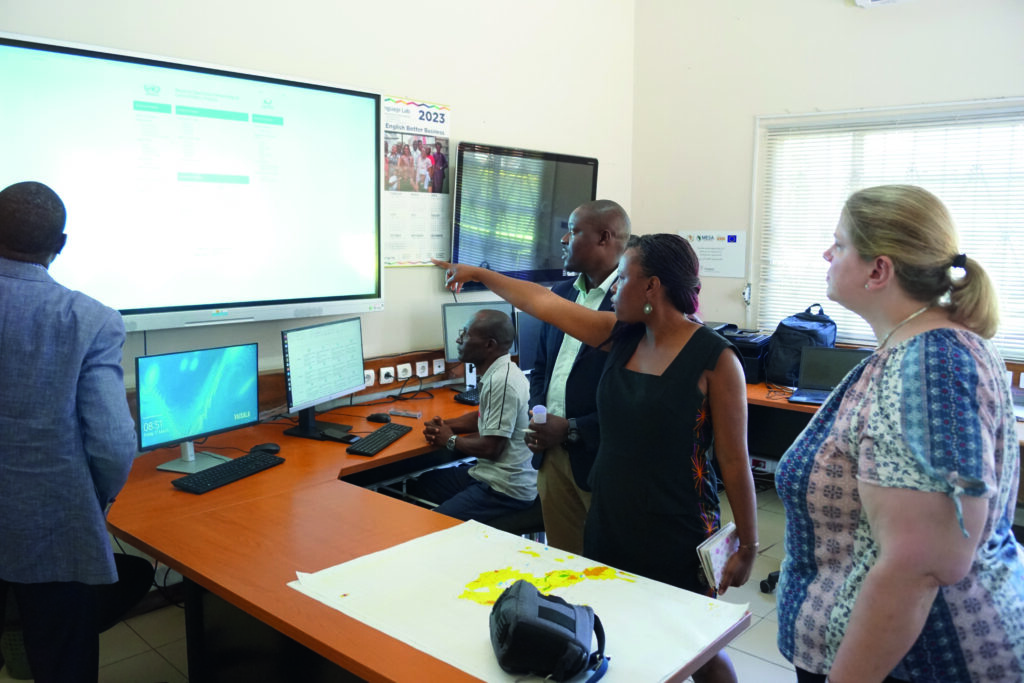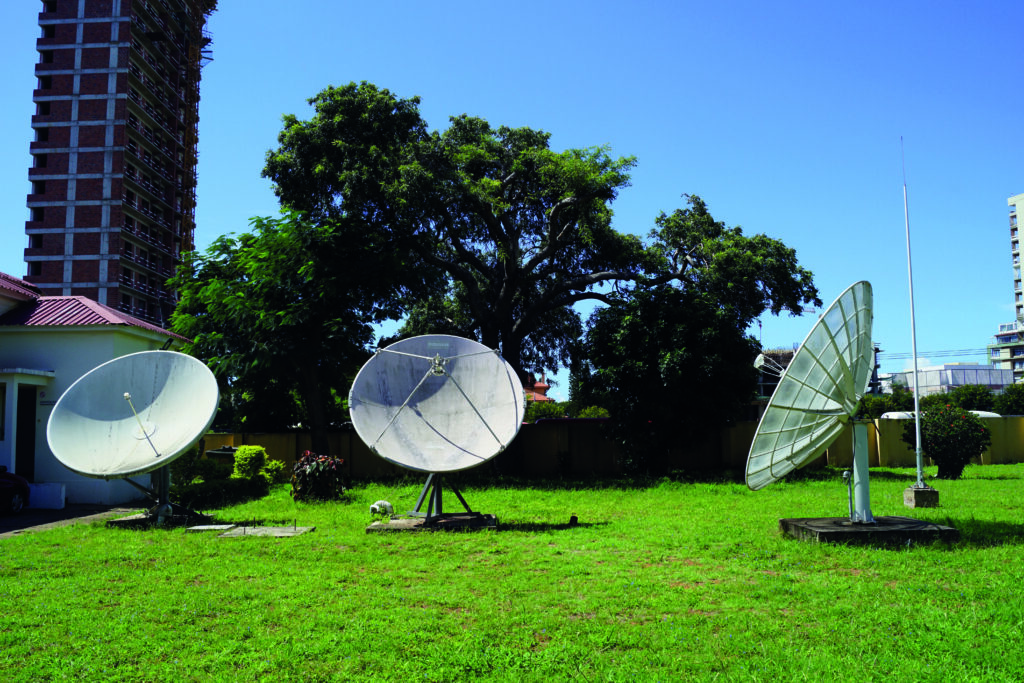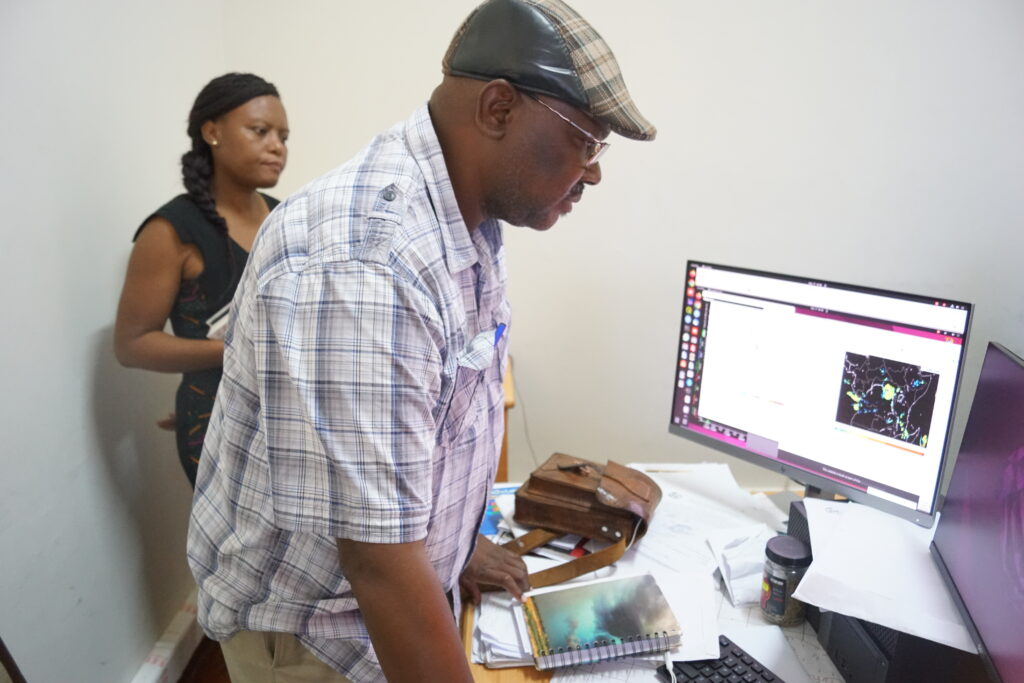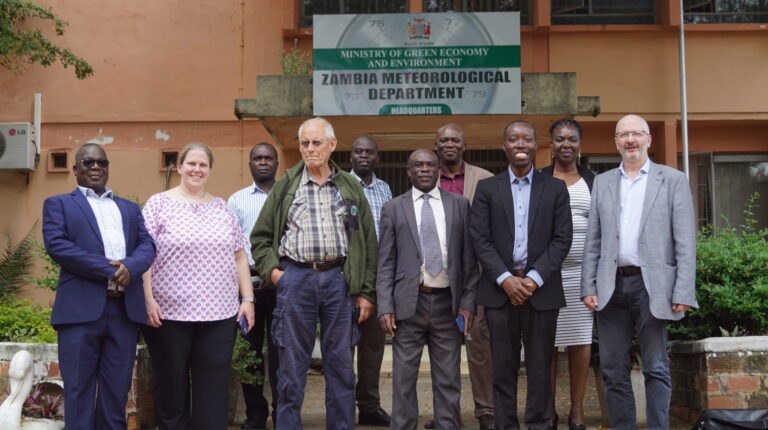An international initiative to transform community access to early warning systems (EWS) for weather events in southern Africa is underway after a £2m (US$2.5m) funding injection by the UK Foreign, Commonwealth and Development Office (FCDO), administered by the UK Met Office.
Part of the Weather and Climate Information Services (WISER) program, the 30-month WISER Early Warning for Southern Africa (EWSA) project will focus on providing weather information to socially disadvantaged urban populations to reduce the damage caused by storms.
WISER-EWSA is being led by principal investigator Doug Parker, professor of meteorology at the National Centre for Atmospheric Science (NCAS) and the University of Leeds in the UK. The project builds on Parker’s previous work as part of the £9m (US$11m) African Science for Weather Information and Forecasting Techniques (SWIFT) program, funded by the Global Challenges Research Fund (GCRF), which ran between 2017 and 2022. As Parker explains, “With SWIFT, we brought nowcasting for the first time into several African countries and demonstrated that it was viable, using satellite solutions. That was a big step change and this project is a natural continuation of that, to really bring its impact to people in urban environments.”
WISER-EWSA is also closely aligned with the UN and WMO Early Warnings for All initiative, which aims to provide everyone on Earth with protection against extreme weather events through effective early warning systems within the next five years. Estelle de Coning, head of the WMO’s World Weather Research Programme, forms part of the WISER-EWSA core team and has taken a leading role in the design of the project. Parker comments, “We are really the vanguard of the work that Early Warnings for All wants to do and aims to do in a short time. We’re in there a bit ahead of the pack, based on the experience of the team and the fact that we have this funding. Certainly, one of the key goals of the project is to ensure that what we do is scalable, so that the lessons we learn can be applied in other regions and countries.”
Extreme weather puts hundreds of thousands of people across southern Africa at risk every year. It is estimated that 15,000 people were affected by floods in Zambia in January 2022, and in April that year, more than 400 people were killed by floods in Durban, South Africa. Around 200,000 families were displaced in Mozambique’s last rainy season. Most recently, Tropical Cyclone Freddy became the longest-lived tropical cyclone on record and is thought to have killed more than 600 people in Malawi, Mozambique and Madagascar (East Africa).
 Nowcasting in southern Africa
Nowcasting in southern Africa
One of the project’s main objectives is to build capacity for nowcasting using real-time satellite images over Africa. This will help predict weather conditions over the next six hours. The team has also set out to improve short-term weather forecasts that look up to 48 hours ahead. However, Parker cautions that there is no one-size-fits-all solution for nowcasting and early warnings, and southern Africa is particularly challenging because of the wide range of environments and capabilities.
According to Parker, the South African Weather Service (SAWS) – a project partner – already possesses world-leading capabilities in early warnings and forecasting from 0 to 48 hours. “They’re doing things as good as anywhere else in the world,” he says. “It’s important to remember that no country in the world has this problem nailed, and people are still dying where systems have failed. South Africa has really excellent people, hardware and models, so our interest is to work out how that capability can benefit the whole region and other countries.”
For WISER-EWSA, attention will initially focus on the capabilities of Zambia and Mozambique. Although the Zambia Meteorological Department (ZMD) will actively monitor storms and send out alerts, there are no nowcasting capabilities in place, so this is something the agency is actively looking to introduce and formalize through WISER-EWSA. “Mozambique is a different story,” adds Parker. “It does have a form of nowcasting and a lot of capabilities around tropical cyclone response. But there’s always a lot of potential to do more, particularly with better data in short-range forecasts.”
 Effective EWS – a tailored approach
Effective EWS – a tailored approach
Working with the African met agencies, the EWSA team will use nowcasting information to set up short-term weather alerts that can be distributed via text and voice messages, and automated messages on smartphone applications. A similar system was deployed as part of SWIFT in East Africa last year using the Forecasting African STorms Application (FASTA).
“There’s no silver bullet because people receive information in many different ways,” says Parker. “Part of our research is to understand the network of communication. We’re going to use local radio, which is already effective in reaching people, but also WhatsApp is widely used, SMS push alerts in some places, and we’ve got an app in South Africa.
“We’re also going to analyze social media networks,” adds Parker. “We’ll look at the extent to which one person gets a message, particularly vulnerable people including women and people with disabilities, who are our target groups, and then the way in which that information is shared among communities.”
 Testbeds
Testbeds
At the heart of the program, the team will run two weather forecasting testbeds – collaborative events bringing together regional weather forecasters and forecast users to evaluate current weather services and set up new services tailored to user needs. The testbeds will run in real time to evaluate each product, with each testbed running a year apart.
The testbeds will focus on practical operations (including the supply of impact-based forecasts), and combine workshops, interviews and surveys throughout the lifespan of the program. They will encourage co-production by strengthening infrastructure across southern Africa and developing relationships between forecast producers, end users and government structures. The first testbed will take place in Zambia in February 2024.
“The southern African project is about really getting into the communities in urban environments, and really understanding their needs,” said Parker. “While past projects have been more research focused, leading to implementation at a later stage, at the end of this project we expect to have operational systems working and people receiving information and acting on it.”
Economists working on the project also plan to create a sustainable model for producing weather warnings that will help each national meteorological agency to create its own products that can be delivered to private enterprises such as the aviation and logistics sectors.
This article originally appeared in the April 2023 issue of Meteorological Technology International. To view the magazine in full, click here.



